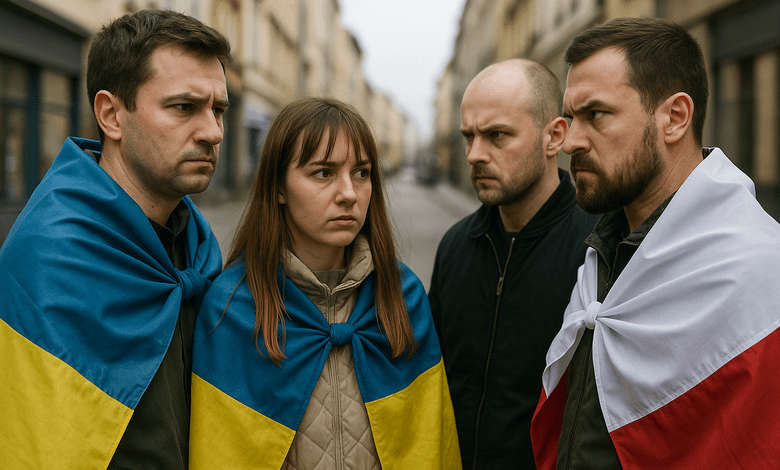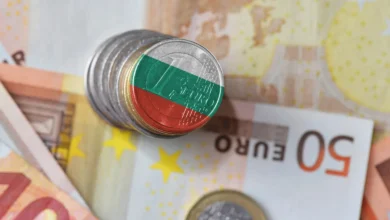Ukrainian refugees complain of growing hostility towards them from Poles

The tension surrounding the presence of Ukrainian refugees is increasing in Polish society. This trend is increasingly evident not only in political debates, but also in the daily life of immigrants. In the material, published BBC, dozens of Ukrainians who found refuge in Poland, told about increasingly noticeable signs of hostility from local residents. It is about personal insults and domestic aggression, as well as about humiliation in the school environment, the spread of xenophobic stereotypes on the Internet and the general atmosphere of alienation.
Many interviewed Ukrainians claim that the situation has noticeably worsened in recent months. One of the protagonists of the report, a 31-year-old woman whom journalists called Svitlana (name changed for security reasons), said that her daughter felt comfortable at school until recently. They even changed the area of residence, but decided not to change the educational institution – the girl liked the team, and there had been no cases of bullying before. However, according to the mother, the situation has changed dramatically: the daughter came home and said that the words: “Return to Ukraine” were heard in her address at school.
Svetlana also remembered another episode that happened later. According to her, high school girls began to express dissatisfaction with the fact that her daughter speaks Ukrainian. Later, they staged a mock air raid, falling to the floor shouting “Rocket! Lie down!” and laughed. This is despite the fact that a few days before, a Russian rocket fell on Svitlana’s hometown in Ukraine, as a result of which dozens of people, including children, died. Svetlana’s daughter was deeply traumatized by this shelling, and the behavior of her peers only increased her emotional state. The mother provided journalists with screenshots of her communication with the school staff, where she complained about the situation. Svitlana also noted that the general atmosphere around Ukrainians in Polish society has changed significantly.
“At work, they often say that Ukrainians come here and behave badly. Ukrainians I know say they want to return home because they feel rejected. It has become scary to live here.” she admitted.
Natalya Panchenko, head of the Stand with Ukraine Foundation in Warsaw, commented on the situation. According to her, many Ukrainian women and children who found temporary shelter in Poland have serious psychological trauma. They survived the war, lost relatives, some have husbands or parents at the front, or have no news from them. It is these people, Panchenko notes, who most often become the target of attacks.
Panchenko emphasized that although the majority of Poles still support Ukraine, recently her organization has recorded a surge of aggressive rhetoric on the Internet.
“We increasingly see xenophobic abuse of people in shops or hotels just because they speak with a Ukrainian accent.” she noted.
According to official data, there are currently more than 2.5 million Ukrainians in Poland, which is approximately 7% of the total population of the country. About a million of them arrived after the full-scale invasion began. The Polish state spends 4.2% of GDP on supporting Ukrainian refugees, which has become the subject of active political discussion.
Sociological polls also confirm the change in public attitudes. Thus, according to the results of the CBOS survey conducted in March 2025, only 50% of Poles support the further acceptance of Ukrainian refugees. This is 7% less than in December 2024 and significantly lower than in 2023, when the level of support was 81%.
This topic became a prominent element of the presidential campaign in Poland. The far-right wing candidate Slavomir Mentzen, who currently has a stable third position in the ratings, adheres to an openly anti-Ukrainian position. He calls for a reduction in support for Ukraine and advocates negotiations with the Russian president. At the same time, Rafal Tshaskovsky, a representative of Prime Minister Donald Tusk’s coalition, is considered the favorite in the election race. Although Tshaskovsky remains a pro-Ukrainian candidate, he has also promised to cut social assistance for Ukrainian refugees.
At the same time, the Polish government publicly announced an “unprecedented attempt” by the Russian Federation to interfere in the elections through mass distribution of fakes. As the head of one of the organizations that monitors the information field, Michal Marek, explained, anti-Ukrainian propaganda spreads from Russian-language Telegram channels, after which it is actively promoted in the Polish media environment. In his opinion, more and more Polish citizens are exposed to these influences.
This indicates a deeper change in the social atmosphere in Poland. Although many Poles continue to support Ukrainians, growing hostility in the public space, decreasing levels of political tolerance, and intensifying anti-Ukrainian narratives in the media and social networks create a sense of vulnerability among refugees. On the eve of the presidential elections, this topic becomes even more politicized, and it is refugees who find themselves at the epicenter of inter-ethnic tension.





